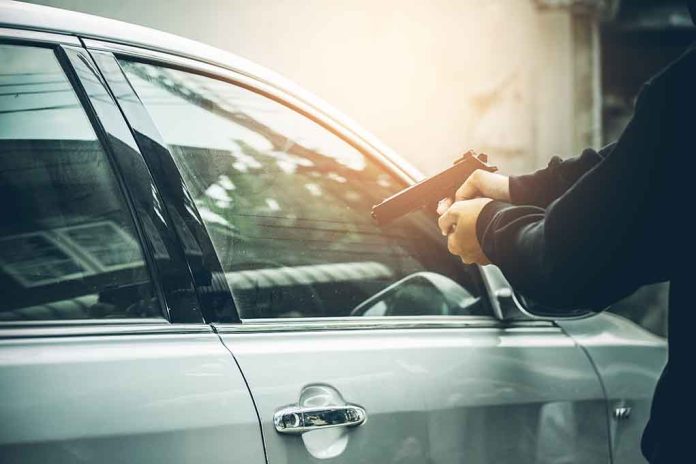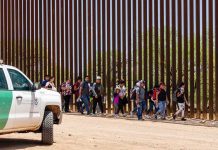
In a stunning display of cartel power, two Mexican mayors were carjacked by the Sinaloa Cartel’s operators, signifying the severity of the power struggles now engulfing the region.
At a Glance
- Two mayors in Sinaloa, Mexico, were brazenly carjacked by cartel gunmen.
- The violence surge is attributed to arrests of top cartel figures and rising intra-cartel conflicts.
- President López Obrador blames the U.S. for exacerbating the region’s turmoil.
- Culiacán residents live in fear with businesses and schools closing.
Escalating Violence in Sinaloa
The volatile state of Sinaloa, Mexico, has seen a stark rise in cartel-related violence, intensified following the capture of notorious drug lords. Two mayors, Estrella Palacios Dominguez from Mazatlan and Octavio Bastidas from San Ignacio, fell victim to the escalating aggression, as they were forcibly carjacked while traveling between towns. Their brazen daylight heists reflect the surging boldness of the cartel factions, striving for dominance within their fractured ranks.
These incidents transpired amidst a fierce turf war ignited by the arrest of Ismael “El Mayo” Zambada, a powerful cartel leader whose fall has splintered existing power structures. The rival factions’ armed confrontations have heavily disrupted life in Culiacán, with over thirty reported deaths in just a week. Local residents are now confined to their homes under constant threat, precipitating early business closures and school shutdowns.
Political Repercussions and Blame
President Andrés Manuel López Obrador has pointed fingers at the United States, emphasizing the foreign nation’s role in sowing chaos within his borders through controversial arrests. He criticized the cross-border operations as “totally illegal,” suggesting they sabotage bilateral cooperation. The diplomatic tension extends to strained relations with the U.S. and Canada, as López Obrador announced a halt to diplomatic discussions.
Mexican prosecutors are even contemplating treason charges against those involved in the U.S.-led capture of Zambada. Claudia Sheinbaum, President-elect, has shown solidarity with López Obrador’s stance, advocating for the importance of communication and collaboration in resolving such conflicts.
Local Response and Military Involvement
In response to escalating violence, the Mexican army has taken an unconventional approach by disarming local police, suspecting their collusion with criminal elements. This move was met with both local outrage and relief, as 1,500 residents demonstrated in a march clamoring for peace. In the absence of local law enforcement, federal forces and the National Guard have stepped in to restore some semblance of order, with interim patrols amidst the chaos.
Residents and local officials agree that the cessation of conflict relies heavily on the cartel factions themselves. While Governor Ruben Rocha has initiated proactive measures, including anti-blockade task forces, the long-term resolution remains uncertain without sustained peace talks among the cartels.
Sources:
Mexico Blames US for Cartel Violence Surge
Two Mexican Mayors Carjacked by Cartel Gunmen as Violence Reigns in Sinaloa
Police in a cartel-dominated Mexican city are pulled off the streets after army takes their guns













